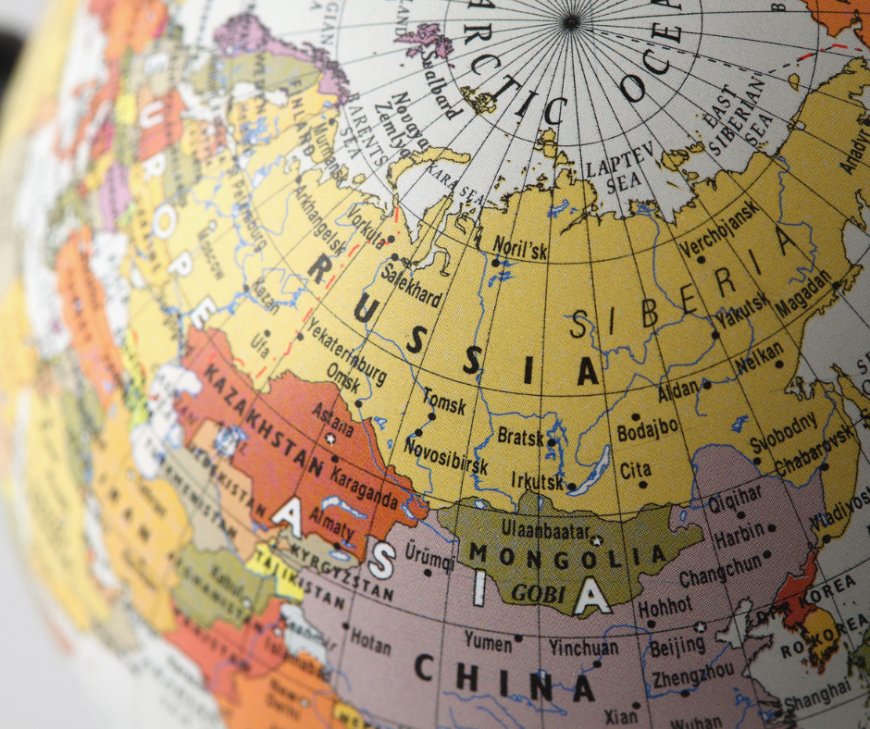Russia Becomes First Nation to Officially Recognize Taliban Government in Afghanistan
In a historic move, Russia has become the first country to formally recognize the Taliban-led government in Afghanistan. This decision marks a significant shift in global diplomacy and could reshape regional politics in South Asia and beyond.

Russia Becomes First Nation to Officially Recognize Taliban Government in Afghanistan
New Delhi, July 2025 – In a development that has stirred both diplomatic circles and geopolitical analysts across the globe, Russia has officially become the first country to recognise the Taliban-led government in Afghanistan. The decision, confirmed by Russia’s Foreign Ministry, represents a bold and controversial shift in international policy, potentially setting a precedent for other nations to follow.
This recognition by a permanent member of the United Nations Security Council comes nearly four years after the Taliban took control of Kabul in August 2021, following the withdrawal of U.S. troops from Afghanistan. While several countries have maintained informal relations or back-channel communications with the Taliban, Russia's formal recognition marks the first of its kind at the state level.
A Bold Diplomatic Statement
Russian President Vladimir Putin’s administration has framed the move as a pragmatic decision driven by regional security and economic considerations. According to official statements, Moscow aims to foster "constructive engagement" with Kabul in order to address pressing issues such as cross-border terrorism, narcotics trade, and refugee flows.
The Russian Foreign Ministry stated,
“The Taliban have demonstrated a stable control over Afghan territory, and the absence of an alternative government necessitates diplomatic recognition for effective bilateral cooperation.”
Why Russia Took the Lead
1. Regional Security Interests
Russia has long expressed concern over the spread of extremism and instability from Afghanistan into Central Asia, especially into its strategic allies like Tajikistan and Uzbekistan. By establishing official diplomatic ties, Moscow believes it can better coordinate on counterterrorism and border security efforts.
2. Economic Motives
Afghanistan sits at a critical geographic junction between Central Asia and South Asia. By aligning with the current regime, Russia aims to gain early access to infrastructure projects, mining rights, and trade routes. There is also a broader ambition to expand the influence of the Eurasian Economic Union (EAEU) and potentially integrate Afghanistan into Russia’s regional economic strategy.
3. A Strategic Counter to Western Influence
Russia's recognition also carries symbolic weight in challenging Western dominance in global diplomacy. The U.S. and most European nations have so far refused to recognise the Taliban, citing concerns over human rights, particularly the rights of women and minorities. By acting unilaterally, Russia is asserting its independent foreign policy approach and reshaping power dynamics in the region.
Reaction from the International Community
Reactions have been mixed. While China and Iran have maintained close contact with the Taliban, they have not yet granted official recognition. China's Foreign Ministry stated it was “closely monitoring developments” and called for “an inclusive political structure” in Afghanistan.
On the other hand, the United States, the European Union, and several UN bodies have criticized Russia's decision, warning that it may undermine efforts to hold the Taliban accountable for human rights violations and may set a dangerous precedent without clear commitments from Kabul.
The Afghan diaspora and rights groups have expressed alarm, fearing that international recognition without reforms could legitimize authoritarian rule and further embolden hardline elements within the Taliban.
Taliban's Response
The Taliban leadership welcomed the announcement with open arms. A spokesman for the Afghan Foreign Ministry stated:
“We commend the Russian Federation for respecting the sovereignty and the will of the Afghan people. This step will open new avenues for cooperation and development.”
The regime, which has been under various international sanctions and financial restrictions, hopes Russia's recognition will encourage other countries to follow suit, potentially unlocking foreign investment, humanitarian aid, and multilateral agreements.
The Road Ahead
While Russia’s recognition is legally and diplomatically significant, it does not necessarily translate into immediate global legitimacy for the Taliban. However, it does signal a shift in global politics—away from a U.S.-led liberal world order and towards a multipolar system where regional powers make independent choices.
Whether other countries will follow Russia’s lead remains uncertain. Much depends on how the Taliban governs in the coming months—particularly on issues like girls' education, media freedom, minority rights, and counterterrorism.
For now, Russia’s decision has placed a spotlight back on Afghanistan—a country that continues to sit at the crossroads of history, ideology, and strategic interest.
Conclusion
Russia’s official recognition of the Taliban-led government is a landmark moment in international diplomacy. While it opens the door for closer bilateral cooperation, it also raises critical questions about legitimacy, human rights, and the future of global norms. As the international community watches closely, Afghanistan’s next steps will likely determine whether this move brings long-term stability or sows further discord in an already fragile region.














